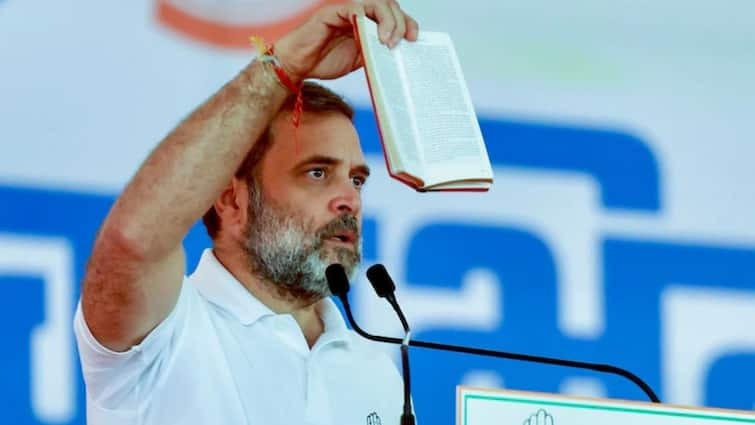
In a fiery address during a rally in Seelampur, Congress leader Rahul Gandhi launched a scathing attack on the Bharatiya Janata Party (BJP) and the Aam Aadmi Party (AAP). Amid rising concerns about communal tensions and governance failures, Gandhi reaffirmed his commitment to supporting anyone who has been a victim of violence, regardless of their background.
The rally marked a significant moment in Congress’s outreach strategy ahead of upcoming elections, with Gandhi presenting himself as a champion of justice and inclusivity.
A Rally Against Violence and Divisive Politics
Seelampur, a neighborhood with a history of communal sensitivity, served as a poignant backdrop for Gandhi's message of peace and unity. Addressing the crowd, he stated, "I will stand with anyone who is a victim of violence, no matter their religion, caste, or community."
Gandhi’s remarks highlighted his concerns about the increasing polarization in Indian politics and the impact it has on marginalized communities.
Rahul Gandhi’s Criticism of the BJP
Gandhi accused the BJP of fostering an environment of hate and violence, claiming that their policies and rhetoric have divided the country along communal lines. He alleged that the BJP's governance is marked by a lack of accountability and disregard for the struggles of ordinary citizens.
Communal Tensions: Gandhi pointed to the rise in communal incidents under BJP rule, blaming their leaders for exploiting divisions for political gains.
Economic Mismanagement: He also criticized the BJP's economic policies, citing unemployment, inflation, and declining incomes as indicators of failed governance.
"The BJP's model of politics thrives on fear and hatred, but India is built on love and harmony," Gandhi declared to thunderous applause.
AAP Also in the Crosshairs
Gandhi didn’t spare the AAP, accusing it of failing to deliver on its promises and contributing to the disillusionment of Delhi's citizens. He criticized the Arvind Kejriwal-led government for its handling of key issues such as education, healthcare, and urban infrastructure.
"AAP claims to be different, but their governance is no better. They, too, have failed to address the real concerns of the people," he remarked.
Standing in Solidarity with Victims
A significant portion of Gandhi's speech focused on solidarity with victims of violence and injustice. He recounted stories of individuals affected by communal riots, displacement, and systemic oppression, pledging that Congress would stand by them and work towards their rehabilitation.
"The Congress party has always been on the side of those who suffer. We will not allow anyone to feel abandoned in their time of need," he emphasized.
Congress’s Vision for a Better Future
Gandhi outlined Congress's vision of inclusive governance and a united India, promising a focus on welfare policies, economic reforms, and bridging social divides. He assured the crowd that Congress would prioritize the voices of the marginalized and work to restore the country’s democratic ethos.
Key points from Gandhi’s address included:
- Eradicating Communal Politics: A pledge to end divisive politics and promote unity.
- Job Creation: Plans to tackle unemployment and boost economic growth.
- Strengthening Social Welfare: Commitments to improving education, healthcare, and public infrastructure.
- Protecting Constitutional Values: Reaffirmation of Congress’s commitment to democracy, secularism, and human rights.
Public Response and Political Implications
The rally in Seelampur drew a massive crowd, reflecting the resonance of Gandhi’s message among local communities. Political analysts view his speech as part of Congress’s broader strategy to reclaim its position as a credible alternative to the BJP and regional parties like AAP.
However, challenges remain. The party must navigate internal divisions, strengthen its grassroots presence, and effectively counter the BJP’s robust organizational machinery.
Read More: When Cricket Entered the Courtroom Why Justice Surya Kant Referenced Jasprit Bumrah

 Share
Share



